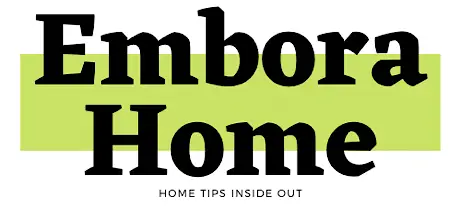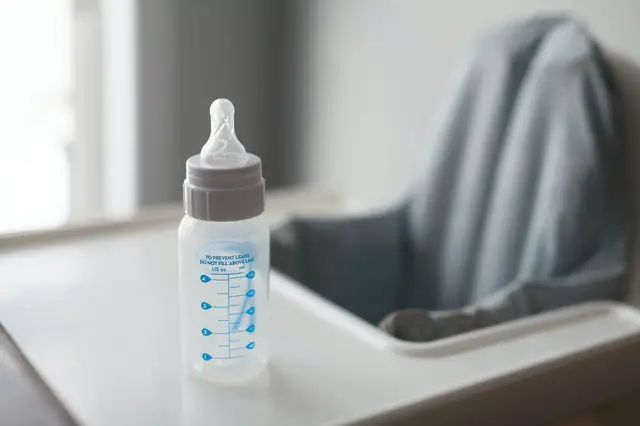If you’ve ever raised a child, you’ll agree with the fact that, apart from being a source of joy and happiness, there’s one thing they all have in common. They get sick quite easily.
Unfortunately, one of the most common factors that can put your baby under the weather is a dirty, or at least, an improperly cleaned feeding bottle.
But here’s the thing, what exactly is the best way to wash it? Is it safer to wash with your hands? Or in this case, can you put baby bottles in the dishwasher?
Baby bottles can be put inside the dishwasher for cleaning. And this method has been endorsed by many health authorities including the Centre For Disease Control and Prevention, as it delivers squeaky clean components from bottle caps, sucking teats to bottle rings and the actual bottle itself, especially when the sanitization feature of the dishwasher is used.
Can I just get any cheap knockoff feeding bottle?
First of all, before any cleaning discussion is brought up, you have to make sure you’ve done the assignment of getting safe and high-quality materials for your baby.
Having bottles of premium quality will ensure that you never have to worry about chemical Leeching, discoloration, or structural disintegration of the bottles under heat.
Now bringing up the topic of cleaning, you need to make sure you’re using safe detergents inside the dishwasher. It’s one thing to have quality items, and it’s another to know how to properly take care of them.
What are the best types of detergents for cleaning baby bottles in the dishwasher
When using dishwashers for baby bottles, the detergent you use is just as important as the quality of the bottle being washed.
While detergents are generally helpful and instrumental in all aspects of cleaning, they are also known to sometimes possess certain compounds that can be harsh.
Considering how delicate it is to clean baby bottles, the detergents you are using should be thoroughly inspected and reviewed.
Read Also: Can you put fridge shelves in the dishwasher?
Detergents that contain any of the following substances should not be used for baby bottles;
- Perfumes
- Chlorine Bleach
- Sulfates
- Phosphates
- Paraben
- Caustics
- Triclosan
- Dyes
Those are some of the substances that your conventional detergents contain. They may have proven to be effective in the general sense of cleaning, but they are just too harsh to wash your baby bottles with.
Alternative detergents that can be used for baby bottles in dishwashers are those that are naturally formulated and void of the substances listed above.
These detergents are usually made with plant-based enzymes that leave no traces or residue of food/milk odor or the detergent being used.
These kinds of detergents are usually specially formulated for baby feeding utensils and are made from hypoallergenic materials that are safe and non-toxic.
Any detergent that is short of these qualities (non-toxic and non-residue) can leave trace amounts that may be too harmful to an infant. So it is important to read labels and make further research while acquiring these products.
What are some of the things I should take note of before washing with a dishwasher?
Before using a dishwasher for baby bottles, certain things would have to be put in place.
A dishwasher basket is essential because it protects the smaller components that baby bottles usually have.
When washing a baby bottle, it would have to be dismantled before the washing process starts.
This is why a dishwasher basket should be used so that the cover, nipple, lids, travel caps, wide base collars, etc., are not lost into the filter or wrongly positioned during the wash.
If this happens, it could also end up damaging your entire machine.
The basket would not only keep all the items intact. It would also hold them in place separately and adequately enough for an efficient wash.
When washing bottles, they should be properly emptied first. Then the bottles can be soaked in warm water for some minutes. This is to rinse out any extra particles or liquids that may be present.
When this is done, the bottles should be placed in the basket, with the nipple bottle parts placed in the sensitive-wash section of the basket. The basket is compartmentalized across two sections based on sensitivity and the level of cleaning to be done.
The bottles can be placed inside the basket with the top facing down to reduce the possibility of other substances or particles entering.
After the washing process, leave the bottles to be air-dried after shaking the water off them. Do not use towels because they might be carrying germs.
How Often should You Wash Your Baby Bottle In The Dishwasher?
How often do you do your dishes? Everyday huh? That’s how frequently you should be washing baby bottles in the dishwasher.
At a point, it can become arduous, and in that case, it’s totally fine to soak the dismantled parts in a washbasin filled with hot water and baby bottle-friendly soap, and then scrub with a clean brush used only for that specific purpose.
How often should I clean my dishwasher and all its components
Dishwashers, like every other home appliance, should be cleaned regularly.
One of the ways to do this is to regularly clean the dishwasher with a clean cloth, an antiseptic, bleach a safe detergent, and hot water.
It might be time consuming but it’s worth it, considering how sensitive babies are, and that other things such as dishes and pots are most likely used in the same dishwasher, once a week would be appropriate.
The cleaning should be thorough and a piece of clean cloth should be used for drying.
Components of the dishwasher such as the basket and other parts should also be cleaned on the same basis. Also, baby bottles should not be washed alongside other materials.
How do I Remove stubborn smells from my baby’s bottle?
Using a dishwasher for your baby bottles does not always guarantee that residual smell would be taken care of. Sometimes, the bottle may be clean but the odor may remain and require an extra effort to be removed.
And that’s where vinegar comes in. Put a tablespoon of vinegar and some hot water in the baby bottle and shake it thoroughly before emptying. After this, rinse the bottle properly and use the appropriate detergent or washing soap to clean the bottle.
Are silicone bottles a viable option?
Silicone bottles are one of the best options for baby bottles for a host of reasons. Primarily, they are a combination of glass and plastic and possess some of the qualities of these two materials.
Silicone bottles are not as sterile or heavy as glass. They are also more cost-friendly than glass with just about the same amount of safety. At the same time, they are not as porous or vulnerable to stains as plastics, providing a sense of balance between the two materials.
Silicone bottles are naturally free of chemicals such as Phthalates, BPA, or PVC. They are also heat resistant, and so can be put in microwaves, boiled in hot water, and washed in a dishwasher.
What’s the best way to dry my baby’s bottle?
Baby bottles are best air-dried after being washed in a dishwasher. They can be well shaken to remove as much moisture as possible then placed on a clean surface and in a convenient position to be drained.
A primary reason for this approach is that it eliminates the need for using a cloth to clean the bottle, especially the insides. Doing this could expose the bottle to more germs, and even if the cloth is regularly washed. Particles from the cloth can also accumulate inside the bottle if this drying method is used.
I don’t have a dishwasher, so what are some other ways I can effectively clean my baby’s bottle?
It’s not always going to be possible to clean baby bottles using the dishwasher, and in that case, cleaning by hand is a decent option. Here are the steps to follow:
- Make sure your hands are properly cleaned
- Dismantle the baby bottle and rinse every part using cold water
- Soak in a clean wash basin containing hot water and baby-bottle-safe detergent and scrub using a very clean brush specially used for cleaning baby bottles
- Rinse properly, making sure to squeeze water out of any holes like that from the nipple — you don’t want your baby sucking on E.coli
- Now allow to air dry, and only air dry.
Should You Sterilize Your Baby Bottles?
Yes, occasionally and typically for infants that are less than 12 months old and are feeding from the bottle, according to the CDC.
Also, if your baby has an underlying health condition such as a weakened immune system, you may need to sterilize the baby bottle more frequently, ideally after every use.
Sterilizing is not complicated and easy to observe. All you need to do is boil water, pour it into a clean bowl or container, and then dip the bottle inside it for 20 minutes.
Do ensure the container is covered.
Read more about some other ways to sterilize your baby’s bottle
Conclusion
Although, as stated above, you can put baby bottles in the dishwasher, it’s important to note that you can’t just toss it into the machine, crank it up, and then go grab a soda.
You also have to be mindful of the type of detergent to use, the quality of the feeding bottle (a sub-par bottle could disintegrate on heating), as well as the presence of a dishwasher basket.
All these may sound tedious and frustrating sometimes, but you know what’s more frustrating? A sick baby

